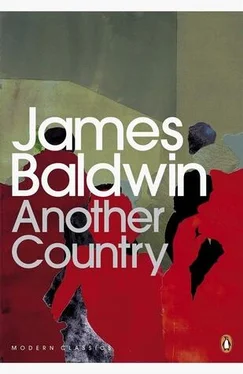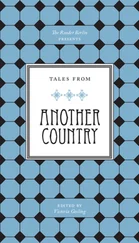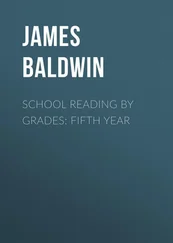James Baldwin - Another Country
Здесь есть возможность читать онлайн «James Baldwin - Another Country» весь текст электронной книги совершенно бесплатно (целиком полную версию без сокращений). В некоторых случаях можно слушать аудио, скачать через торрент в формате fb2 и присутствует краткое содержание. Год выпуска: 2001, Издательство: Penguin Books, Жанр: Современная проза, на английском языке. Описание произведения, (предисловие) а так же отзывы посетителей доступны на портале библиотеки ЛибКат.
- Название:Another Country
- Автор:
- Издательство:Penguin Books
- Жанр:
- Год:2001
- ISBN:нет данных
- Рейтинг книги:3 / 5. Голосов: 1
-
Избранное:Добавить в избранное
- Отзывы:
-
Ваша оценка:
- 60
- 1
- 2
- 3
- 4
- 5
Another Country: краткое содержание, описание и аннотация
Предлагаем к чтению аннотацию, описание, краткое содержание или предисловие (зависит от того, что написал сам автор книги «Another Country»). Если вы не нашли необходимую информацию о книге — напишите в комментариях, мы постараемся отыскать её.
is a novel of passions — sexual, racial, political, artistic — that is stunning for its emotional intensity and haunting sensuality, depicting men and women, blacks and whites, stripped of their masks of gender and race by love and hatred at the most elemental and sublime. In a small set of friends, Baldwin imbues the best and worst intentions of liberal America in the early 1970s.
Another Country — читать онлайн бесплатно полную книгу (весь текст) целиком
Ниже представлен текст книги, разбитый по страницам. Система сохранения места последней прочитанной страницы, позволяет с удобством читать онлайн бесплатно книгу «Another Country», без необходимости каждый раз заново искать на чём Вы остановились. Поставьте закладку, и сможете в любой момент перейти на страницу, на которой закончили чтение.
Интервал:
Закладка:
Vivaldo had often suggested that they move out of the Village, into the lower East Side, where cheap lofts were available, lofts which could be made extremely attractive. But Ida had vetoed this. Her most important reason was never stated, but Vivaldo eventually realized that she had a horror of that neighborhood because Rufus’ last attempt at domestic life, or at life itself, had been made down there.
She told Vivaldo, “I wouldn’t feel safe, honey, coming home at night or coming home in the daytime. You don’t know those people the way I do, because they’ve never treated you the way they’ve treated me. Some of those cats, baby, if they catch you alone on a subway platform, or coming up the steps to your apartment, they don’t think nothing of opening up their pants and asking you to give them a blow job. That’s right . And, look, baby, I was down there, it was on Mott Street, with Rufus, a couple of years ago, to see some people for Sunday brunch. They were white. And we went out on the fire escape to look at a wedding procession down the street. So some of the people on the block saw us. Well, do you know that three white men came up to that apartment, one with a blackjack and one with a gun and one with a knife, and they threw us out of there. They said”—and she laughed—“that we were giving their street a bad name.”
She watched his face for a moment. “It’s true,” she said, gently. Then, “Let’s just stay here, Vivaldo, until we can do better. It’s rough, but it’s not as rough as it might be.”
So they tried to keep their door open, but there were risks attached to this, particularly if Ida were home, lounging on the sofa in her brief blue playsuit or practicing arrangements with the help of the record player. The sound of Vivaldo’s typewriter, the sound of Ida’s voice, the sound of the record player, attracted the attention of people coming up and down the stairs and the glimpse the open door afforded of Ida inflamed the transient imagination. People used the open door as an incitement — to stop, to listen, to stare, to knock, pretending that a friend of theirs had once lived in this very apartment, and did they know whatever had become of good old Tom or Nancy or Joanna? Or inviting them to a party upstairs or down the street, or inviting themselves to a party at Vivaldo’s. Once, absolutely beside himself, Vivaldo had beaten from the landing to the streets a boy who stood in the hot shadow of the landing, his hands in his pockets and his eyes on Ida — or, rather, on the spot from which, with a furious cry and a curse, she had hastily removed herself. The boy had not taken his hands from his pockets, only kept up a small, ugly animal moaning; and fallen, when Vivaldo had pushed him through the street door, heavily, on one shoulder. The police came shortly afterward, their own combustible imaginations stiffening their ready civic pride. After that, they kept the doors not only closed but locked. Yet, the entire shapeless, unspeakable city seemed to be in the room with them, some summer nights.
He worked, she worked, he paced the room, she paced. She wanted him to become a “great” writer, but, unless she was working, she was incapable of being left alone. If she was working, the sound of her voice, the sound of her music, menaced, and, most often, drowned out that other orchestra in his head. If she was not working, she poured him another beer, ruffling his hair; she observed that his cigarette had burned itself out in the ashtray and lit him a new one; or she read over his shoulder, which he could not bear — but it was easier to bear this than to hear himself accused of having no respect for her intelligence. On the evenings they were together in the house, he really could not work, for he could not move far enough away from her, he could not enter himself. But he tried not to resent this, for the evenings she was away were worse.
Once or twice a week, sometimes, or once every two or three weeks, she went to Harlem, never inviting him to come along. Or she was sitting in with some musicians in Peekskill or Poughkeepsie or Washington or Philadelphia or Baltimore or Queens. He drove down with her once, with the other musicians, to a joint in Washington. But the atmosphere was deadly; the musicians had not wanted him along. The people in the joint had liked him well enough but had also seemed to wonder what he was doing there — or perhaps it was only he who wondered it; and Ida had sung only two songs, which did not seem much after such a long trip, and she had not sung them well. He felt that this had something to do with the attitude of the musicians, who seemed to want to punish her, and with the uneasy defiance with which she forced herself to face their judgment. It was only too clear that if he had been a powerful white man, their attitudes would have been modified by the assumption that she was using him ; but it was obvious that, as things were, he could do her no good whatever and, therefore, he must be using her . Neither did Ida have the professional standing which would force them to accept him as the whim, the house pet, or husband of a star. He had no function, they did: they pulled rank on him, they closed ranks against him.
There was speedily accumulating, then, between Ida and Vivaldo, great areas of the unspoken, vast minefields which neither dared to cross. They never spoke of Washington, nor did he ever again accompany her on such out-of-town jaunts. They never spoke of her family, or of his. After his long, tormenting Wednesday night, Vivaldo found that he lacked the courage to mention the name of Steve Ellis. He knew that Ellis was sending her to a more exclusive and celebrated singing teacher, as well as to a coach, and intended to arrange a recording date for her. Ida and Vivaldo buried their disputes in silence, in the mined field. It seemed better than finding themselves hoarse, embittered, gasping, and more than ever alone. He did not wish to hear himself accused, again, of trying to stand between her and her career — did not wish to hear it because there was more than a little truth to this accusation. Of course, he also felt that she, although unconsciously, was attempting to stand between himself and his fulfillment. But he did not want to say this. It would have made too clear their mutual panic, their terror of being left alone.
So, there they were, as the ghastly summer groaned and bubbled on, he working in order not to be left behind by her, and she working — in order to be free of him? or in order to create a basis on which they could be, more than ever, together? “I’ve got to make it,” she sometimes said, “I’m going to make it. And you better make it, too, sweetie. I’ve just about had it, down here among the garbage cans.”
As for Ellis:
“Vivaldo, if you want to believe I’m two-timing you with that man, that’s your problem. If you want to believe it, you’re going to believe it. I will not be put in the position of having to prove a damn thing. It’s up to you. You don’t trust me, well, so long, baby, I’ll pack my bags and go .”
Some nights, when Ida came in, from the restaurant, her singing teacher, her parents, wherever she had been, bringing him beer and cigarettes and sandwiches, her face weary and peaceful and her eyes soft with love, it seemed unthinkable that they could ever part. They ate and drank and talked and laughed together, and lay naked on their narrow bed in the darkness, near the open windows through which an occasional limp breeze came, and tasted each other’s lips and caressed each other in spite of the heat, and made great plans for their indisputable tomorrow. And often fell asleep like that, at perfect ease with one another. But at other times they could not find each other at all. Sometimes, unable to reach her and unable to reach the people in his novel, he stalked out and walked the summer streets alone. Sometimes she declared she couldn’t stand him another minute, his grumpy ways, and was going out to a movie. And sometimes they went out together, down to Benno’s, or over to visit Eric — though these days, it was usually Eric and Cass.
Читать дальшеИнтервал:
Закладка:
Похожие книги на «Another Country»
Представляем Вашему вниманию похожие книги на «Another Country» списком для выбора. Мы отобрали схожую по названию и смыслу литературу в надежде предоставить читателям больше вариантов отыскать новые, интересные, ещё непрочитанные произведения.
Обсуждение, отзывы о книге «Another Country» и просто собственные мнения читателей. Оставьте ваши комментарии, напишите, что Вы думаете о произведении, его смысле или главных героях. Укажите что конкретно понравилось, а что нет, и почему Вы так считаете.












